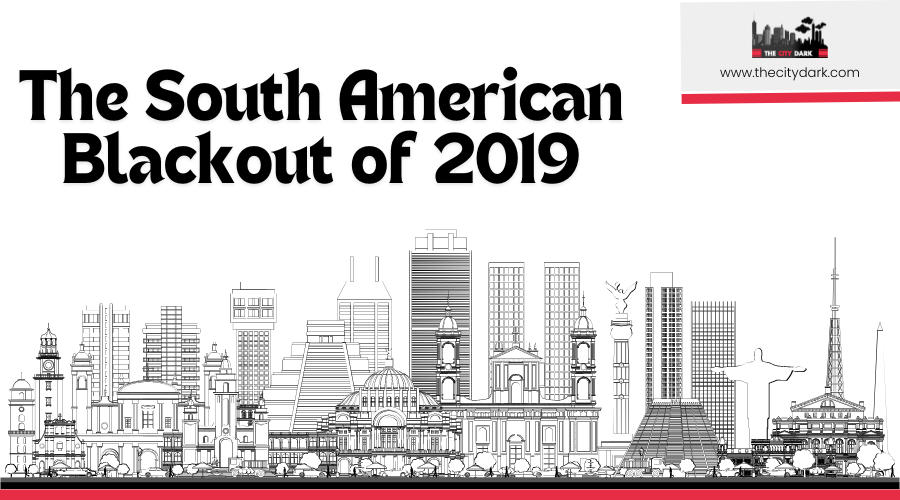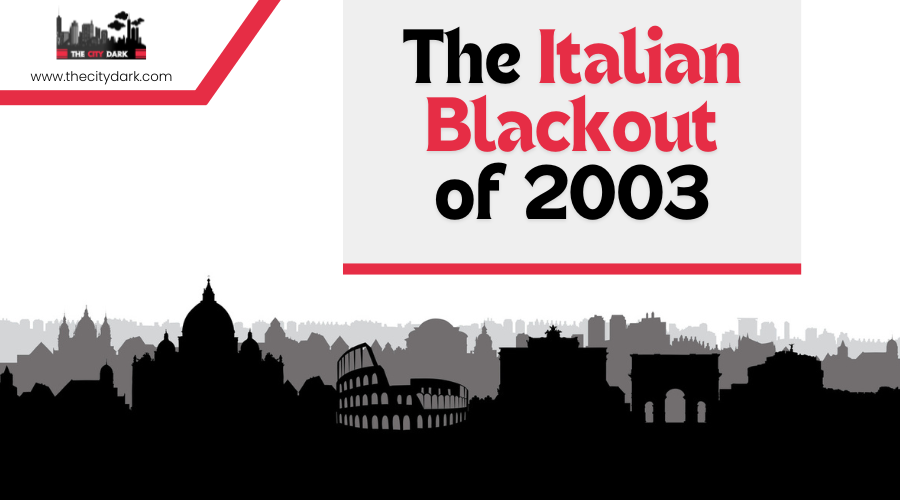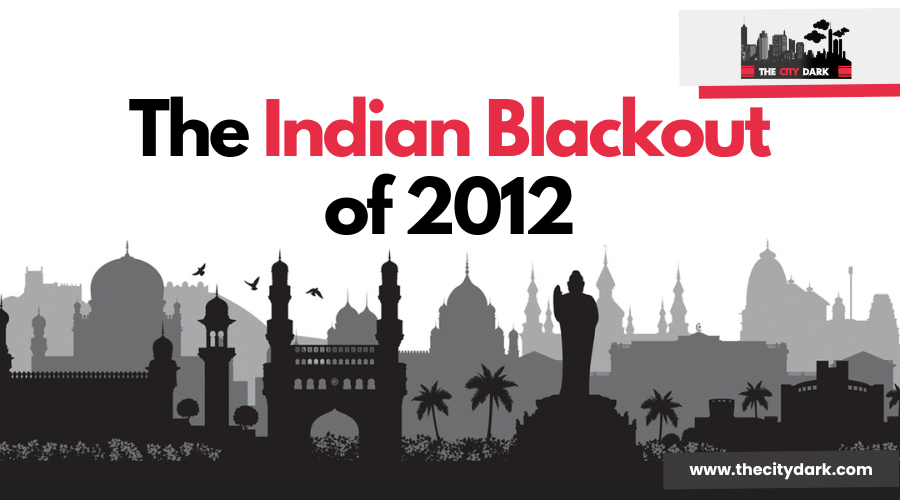The Venezuelan Blackout of 2019
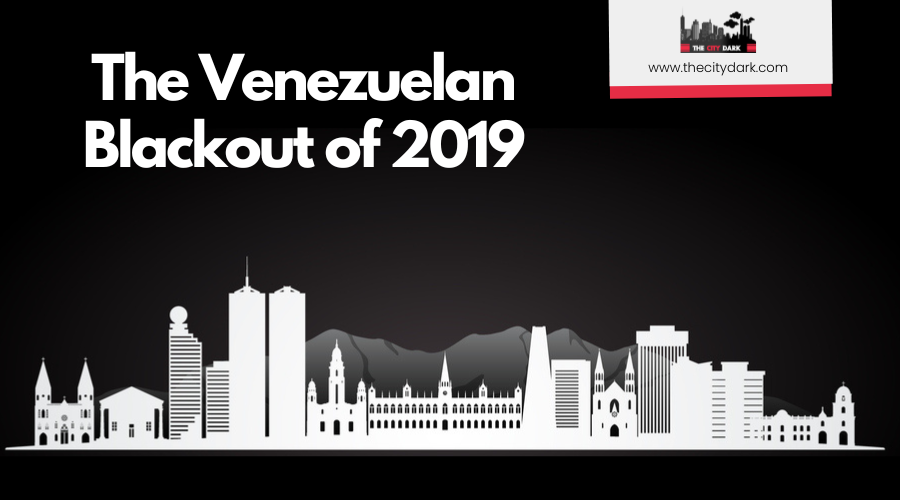
Imagine living through the Venezuelan blackout of 2019, where 70% of the population suddenly loses power. Daily life becomes a struggle for essentials like water, food, and medical supplies. The blackout's root causes—systemic corruption, aging infrastructure, and poor management—highlight the dire state of the national electricity sector. When the lights go out for days, the government's inadequate response only fuels public outrage. This crisis not only inconvenienced but also exposed deep societal fractures in Venezuela. Want to know the full story?
Historical Context
Venezuela experienced significant power outages over nearly a decade, but the nationwide blackouts that began on March 7, 2019, were unparalleled in their scale and impact. Twenty-three states and even Roraima in Brazil were affected, marking the largest power outage in the country's history. The Guri Dam, which provides 70-80% of Venezuela's electricity, was central to this crisis. Aging infrastructure and poor maintenance at the dam exacerbated the situation, leading to massive power failures.
The origins of these issues date back to the nationalization of Venezuela's electric sector in 2007, resulting in the creation of the state-run Corpoelec. Despite the government's $100 billion investment in 2009 to improve the electrical system, systemic corruption drained over $80 billion from the energy sector since 2010. These funds, intended to strengthen the infrastructure, instead vanished, leaving the sector in disrepair.
Under Nicolás Maduro's administration, the situation deteriorated further, with a significant brain drain of skilled engineers hindering efforts to maintain and upgrade the power grid. Corruption and underfunding combined to create a perfect storm, culminating in the devastating blackouts of 2019.
Causes of the Blackouts
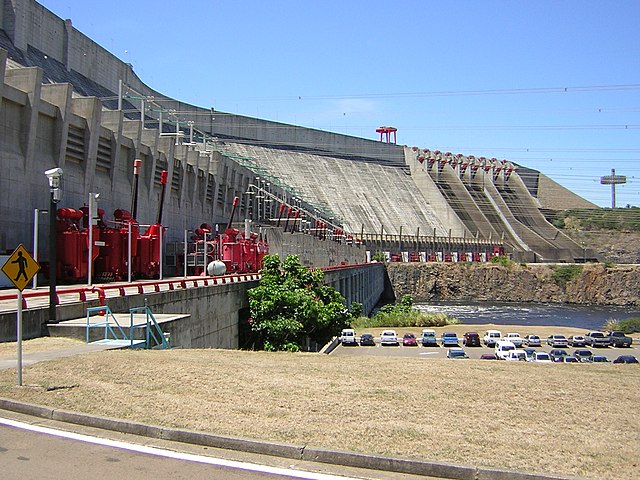
Understanding the historical context reveals that the Venezuelan blackouts of 2019 resulted from deep-rooted issues within the country's power sector. The aging infrastructure, particularly the Guri Dam, which provides 70-80% of the nation's electricity, suffered from years of neglect and mismanagement. This lack of maintenance, coupled with significant brain drain and underfunding, left critical electrical systems vulnerable.
The Maduro administration claimed sabotage and criminal attacks were to blame. However, many analysts argue that corruption and poor governance were major contributors to the power crisis. The Guri Dam's momentary power loss led to an overload, triggering safety systems that became uncontrollable.
Thermal power plants, crucial for energy generation, were also non-operational due to fuel shortages. This issue stemmed from the mismanagement of PDVSA, the state oil company.
| Issue | Description |
|---|---|
| Aging Infrastructure | Guri Dam and other systems suffered long-term neglect. |
| Lack of Maintenance | Underfunding and brain drain crippled crucial maintenance efforts. |
| Governance and Corruption | Analysts point to the Maduro administration's corruption and poor governance. |
These factors combined to create a perfect storm, leading to the widespread blackouts and the ensuing power crisis.
Societal Impact
The 2019 blackout in Venezuela severely affected the nation, plunging approximately 70% of the population into darkness and chaos. Daily life was severely disrupted: public transportation halted, schools and workplaces closed, and hospitals faced critical service interruptions. Medical professionals reported at least 26 fatalities, including six infants, directly linked to the power cuts and their aftermath.
The lack of electricity exacerbated existing water shortages. In Caracas, the water supply dropped to zero, leaving around 20 million people without access to clean water. This intensified the humanitarian crisis, leading to a surge in waterborne diseases such as diarrhea, typhoid fever, and hepatitis A. With hospitals already under strain, the situation became increasingly dire.
Shortages of food and medicine grew more acute. People struggled to find basic necessities, and the blackouts made it nearly impossible to store perishable items safely. Public sentiment became increasingly hostile, with frustration and anger boiling over into protests against the government, as citizens demanded accountability for the dire living conditions exacerbated by the blackout.
The societal impact of the blackout highlighted the fragility of Venezuela's infrastructure and underscored the urgent need for solutions to prevent future crises.
Economic Consequences
The 2019 Venezuelan blackout had catastrophic economic consequences, with daily losses estimated at US$200 million. The power outage severely impacted the food sector, leading to significant shortages as refrigerated food products spoiled, aggravating the already critical food scarcity. Small businesses were particularly affected, with many forced to reduce hours or close entirely due to the unreliable power supply and damaged inventory. This not only reduced their revenue but also jeopardized the employment and livelihoods of countless Venezuelans.
The blackout exacerbated the nation's economic instability, with Torino Capital projecting that Venezuela's GDP would suffer a hit of about US$1 billion as a direct result of the widespread outages. The economic turmoil drove businesses to increasingly rely on US dollars for daily transactions, adjusting their pricing to cope with cash shortages and hyperinflation.
The blackout's impact extended beyond immediate financial losses, fundamentally crippling the economy. The reliance on US dollars became more pronounced as the value of the local currency plummeted. These economic losses deepened the nation's long-term crisis, making recovery even more challenging.
Government Response
Under President Maduro, the Venezuelan government attributed the 2019 blackout to alleged sabotage and supposed electromagnetic attacks by the U.S. and opposition forces. However, the lack of evidence led to widespread skepticism and ridicule. The persistent outages and ineffective power restoration measures further fueled public frustration and doubt.
Fault Attribution Claims
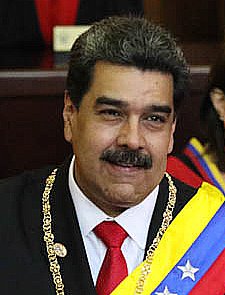
During the 2019 blackout, President Nicolás Maduro's government quickly blamed alleged electromagnetic attacks by the United States, describing it as part of a broader "power war" against Venezuela. Officials claimed these attacks caused the power outage, severely disrupting the lives of millions. They suggested a cyber-attack on the country's electrical and communication systems, despite lacking concrete evidence.
Maduro's administration also accused opposition leader Juan Guaidó of sabotage, aligning this accusation with the ongoing political tensions, as Guaidó was a prominent challenger to Maduro's rule. Investigations were launched against Guaidó, further intensifying the political climate.
However, many analysts and opposition figures, including Guaidó, attributed the blackout to systemic issues within the state-run electric sector. They argued that years of mismanagement and underinvestment were the real causes of the blackout. These systemic problems were often dismissed by the government, which preferred to shift blame to foreign interference.
Public Ridicule Spread
The Maduro administration's response to the blackout faced widespread ridicule on social media, as citizens openly mocked the government's explanations. Claims of foreign sabotage and terrorist attacks did little to quell public anger. Information Minister Jorge Rodriguez's assertion that the blackouts were caused by an electromagnetic attack was met with skepticism and derision.
Public frustration was evident as people took to social media to ridicule the government's narrative. Many dismissed President Maduro's claims of a criminal attack on national peace as an obvious deflection from the regime's mismanagement. The Maduro administration's previous explanations for power outages, including implausible reasons like animal interference and geographical factors, had already eroded their credibility.
Opposition leader Juan Guaidó capitalized on the widespread discontent, demanding accountability for the government's failure to maintain the electrical system. His calls for accountability added fuel to the social media backlash, empowering citizens to voice their disapproval. The public ridicule was not just a fleeting moment of amusement; it signified the growing disconnect between the Maduro administration and the Venezuelan people. The blackouts became a symbol of broader governmental failures, amplifying the outcry for change.
Public Sentiment and Reactions
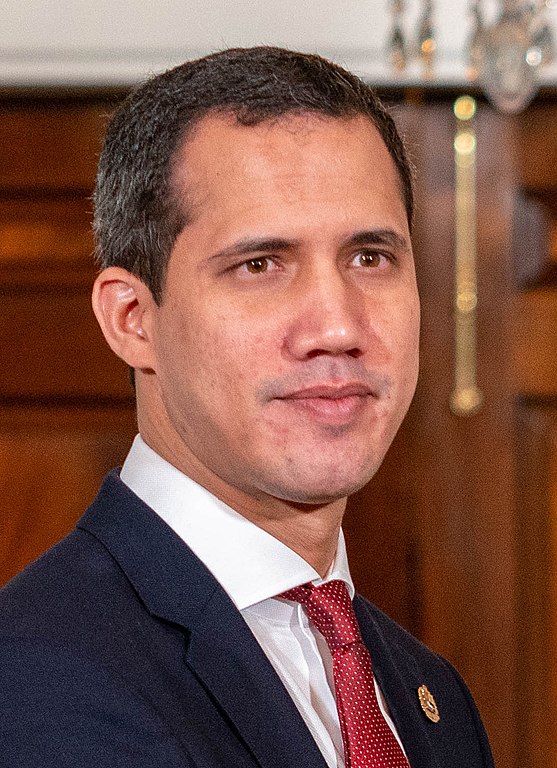
Public sentiment during the 2019 Venezuelan blackout was marked by widespread frustration and anger toward the government, as citizens took to social media to voice their dissatisfaction. The power outages severely disrupted daily life, and people demanded accountability from the Maduro administration. Opposition leader Juan Guaidó seized this moment to call for a national emergency, further galvanizing public sentiment against President Maduro's rule.
Protests erupted across the country, especially outside hospitals and public spaces, where citizens voiced their outrage over the lack of crucial services. The blackout's impact was devastating, with critical services like electricity and water becoming inoperable, leading to increased health risks and a sense of desperation among Venezuelans.
The Maduro administration faced ridicule and skepticism over its explanations for the outages, which included claims of sabotage and foreign interference. These assertions did little to restore public trust, instead deepening the divide between the government and its citizens. As the blackout continued, the calls for accountability grew louder, with protests reflecting the nation's collective frustration and the urgent need for reliable essential services.

